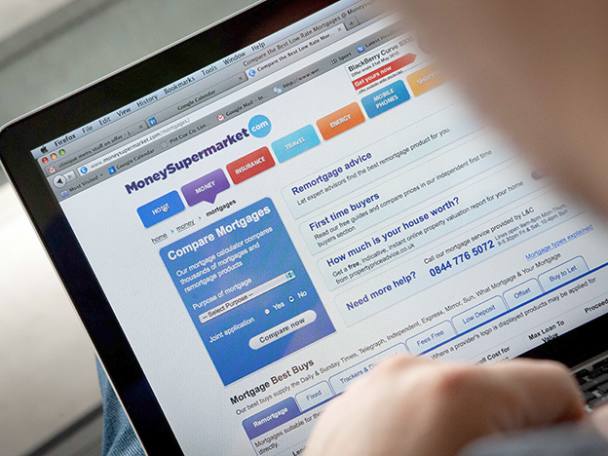A UK-based pharmaceutical services group, Ergomed (ERGO), has agreed to a private equity takeover, marking another notable entry into the growing field of healthcare outsourcing by a leading investment firm. Permira, a specialist technology and health investor, has launched a cash bid worth £703 million to acquire Ergomed. The deal underscores Permira’s continued interest in companies that provide essential support services to drug development and clinical trials, areas that have become increasingly attractive to investors seeking predictable cash flows and defensible market positions. Ergomed’s core activities include managing drug trials and monitoring participants for potential side effects, operations that sit at the heart of modern pharmaceutical development. The transaction highlights a shift in market sentiment toward private equity sponsorship of mid-cap healthcare service providers, a trend driven by opex efficiencies, scale advantages, and the opportunity to accelerate growth through strategic investments.
Deal Overview and Key Players
This section provides a comprehensive look at the deal structure, the parties involved, and the immediate financial terms that define the transaction. Ergomed stands as a UK-listed group specializing in pharmaceutical services, with a business model centered on the management of clinical trials and vigilant monitoring for adverse events among trial participants. The company reported a sharp uptick in revenue in the most recent reporting period and maintained a record-high order book, which stood at £295 million as of 31 December. This record order book signals a robust pipeline and the potential for sustained revenue visibility, reinforcing the strategic appeal of Ergomed as a platform for continued growth under new ownership.
Permira is described as a specialist investor focusing on technology and health sectors, and its involvement in this deal represents a significant vote of confidence from a private equity house known for backing growth-oriented businesses with scalable services. The cash bid values Ergomed at £703 million, a substantial premium to the market price that reflects the perceived strategic value of Ergomed to a buyer seeking a stable, service-oriented platform within the clinical trial ecosystem. The offer is priced at 1,350 pence per share, a level that translates into a premium of 28.3% to the company’s share price at the close of business on 1 September. The reference to the premium relative to that specific date emphasizes the market’s assessment of Ergomed’s progress and potential, while the cash nature of the bid reduces execution risk associated with debt financing or equity rollovers, making the proposal more straightforward for shareholders to evaluate.
The premium metric captures not only Ergomed’s recent performance and ecosystem positioning but also the broader market appetite for outsourced clinical trial services, where steady demand, high barriers to entry, and recurring revenue streams can attract capital from PE backers seeking operational efficiencies and strategic add-ons. The statement that the company was trading at the offer price at the end of 2022 further anchors the valuation in a longer-term price context and suggests that the current premium represents a return to a level that investors previously recognized as fair value, albeit under different ownership dynamics. Taken together, the terms illustrate a transaction that is anchored in cash certainty, a clearly stated per-share price, and a valuation that aligns with Permira’s objective of acquiring a strategically important platform within the healthcare services landscape.
Ergomed: Business Profile, Performance, and Growth Signals
To understand why Ergomed attracted a compelling cash offer, it is essential to examine the company’s business profile and the performance signals that have drawn investor and acquirer interest. Ergomed operates in the pharmaceutical services space, with its core activities centered on managing drug trials and monitoring trial participants for adverse effects. This dual focus places Ergomed at a critical juncture in the drug development value chain, bridging clinical execution and safety oversight, which are essential components for ensuring the integrity and reliability of clinical trial outcomes.
Financially, Ergomed has demonstrated a notable uptick in revenue in the most recent reporting period, signaling demand growth for its services and the potential for expanding its client base and trial portfolio. More telling is Ergomed’s record order book, which stood at £295 million as of 31 December, indicating a robust pipeline and high visibility into future revenues. A robust order book is particularly meaningful in the context of outsourcing services, where contracts can provide long-term revenue streams and a platform for scaling operations to meet rising demand from pharmaceutical sponsors and contract research organizations.
The first half of the year 2023 continued the positive trajectory observed in the prior period, suggesting that the growth momentum in Ergomed’s core business lines remained intact as the transition to new ownership would be contemplated. The combination of growing revenue, an expanding order book, and a track record of delivering specialized services positions Ergomed as an attractive platform for a private equity sponsor seeking to accelerate growth through operational enhancements, potential geographic expansion, and deeper service line integration. The company’s focus on safety monitoring and trial management aligns with broader industry trends toward increased outsourcing of clinical trial activities as sponsors seek to optimize costs, improve timelines, and access specialized expertise.
From a strategic perspective, Ergomed’s business model benefits from recurring service engagements, long-duration trial management contracts, and the potential for expansion into adjacent service areas within the clinical development lifecycle. These characteristics can support a compelling value proposition for a private equity sponsor aiming to build a differentiated platform with strong cash generation, scale advantages, and the possibility of bolt-on acquisitions to broaden geographic coverage and service capabilities. The record order book, in particular, acts as a leading indicator of future revenue generation and assists in providing a measure of revenue visibility that is valuable in any strategic review conducted by potential buyers.
In terms of market positioning, Ergomed competes in a segment characterized by a mix of dedicated contract research organizations and service providers with specialized capabilities in pharmacovigilance, trial management, data analytics, and safety oversight. The company’s ability to carve out a niche within this competitive landscape by delivering high-quality regulatory-compliant services and maintaining strong client relationships would be critical to sustaining growth after the takeover. The positive performance signals also imply potential for deeper client penetration, an expanded service footprint, and more stable earnings trajectories, all of which are attractive attributes for a private equity buyer seeking to realize value through improved operating performance and strategic repositioning.
Offer Mechanics, Valuation Context, and Shareholder Considerations
The mechanics of the Ergoed offer and its valuation context are central to how investors and market participants interpret the deal’s attractiveness. The 1,350 pence per share cash offer translates into a total equity value of £703 million for the company, reflecting a premium over recent market expectations and a price level that the acquirer deems to be fair given the business fundamentals and growth prospects. The cash nature of the bid ensures certainty of value for Ergomed’s shareholders, removing the need for financing contingencies or equity issuance that can introduce execution risk or dilution concerns.
The premium embedded in the offer—28.3% to the company’s share price at the close of business on 1 September—is a key metric used by investors to gauge whether the price adequately rewards existing shareholders for relinquishing ownership in favor of a private equity owner. This premium suggests that Permira is acknowledging Ergomed’s growth trajectory, its record order book, and the potential to realize additional value through strategic and operational improvements under PE ownership.
A point of context for investors is that Ergomed had, at the end of 2022, traded at the offer price, indicating that the price in the current bid represents a return to a level that some investors previously considered fair value, now being offered with the additional signal of a private equity sponsor that may pursue accelerated value creation. This dynamic points to a valuation narrative in which the current bid is designed to be compelling relative to both historical price levels and anticipated near-term growth, while also recognizing the optionality that a private equity owner can pursue through optimization, capital allocation, and potential bolt-on acquisitions or market expansion.
From a shareholder perspective, the decision to accept or reject a cash offer involves weighing immediate liquidity against the potential for continued value creation under the current public market framework or alternative strategic options. In many cases, a private equity bid of this nature is viewed as a strong signal of confidence in the company’s growth path and resilience, while also implying a change in governance and strategic direction that may alter how the business is financed and operated going forward. For Ergomed, the terms of the deal offer a clear and decisive route to value realization for shareholders who choose to participate, with the certainty embedded in a cash payment and a price that reflects a premium over prior market levels.
The broader market implications of such a deal extend beyond Ergomed itself. The transaction contributes to the ongoing conversation about the role of private equity in the healthcare services sector, particularly in segments that provide essential support to clinical development and regulatory compliance. The deal’s influence on multiple dynamics—valuation benchmarks for similar companies, appetite for consolidation in the space, and the perceived defensibility of service-driven business models—can ripple through the sector as peers and potential targets reassess strategic options, capital structures, and growth plans in light of PE interest and demonstrated willingness to deploy significant cash commitments.
Strategic Rationale: Why a Private Equity Takeover Fits Ergomed Today
Understanding why Permira would pursue this deal with Ergomed requires unpacking the strategic appeal from both the buyer’s and the target’s perspectives. Private equity firms are attracted to service-oriented platforms that demonstrate resilient demand, recurring revenue streams, and the potential for margin expansion through operational improvements and scale benefits. Ergomed’s core activities—managing drug trials and monitoring participants for adverse events—fit this profile, as they offer a combination of regulated services, high-quality standards, and a business model that can be scaled with the right investments.
From a strategic standpoint, a PE sponsor may seek to realize value by enhancing Ergomed’s operational efficiency, expanding its geographic footprint, broadening its service lines, and pursuing bolt-on acquisitions to deepen its client base and trial portfolio. The added capital and management focus that a private equity owner provides can catalyze growth initiatives, including investments in digital systems, data analytics capabilities, and expanded pharmacovigilance capacity, which are critical to maintaining and strengthening Ergomed’s competitive position in the global clinical trial services market. A key consideration for Permira would be to preserve and leverage Ergomed’s specialized expertise while exploring strategic opportunities that could unlock additional revenue streams, improve cost structures, and deliver enhanced returns for investors over the medium to long term.
The fact that the deal is structured as a cash offer is particularly meaningful in the private equity landscape. Cash certainty translates into straightforward execution and reduced funding risk compared to deals that require debt financing or equity rollover. For Ergomed’s shareholders, this means an unequivocal path to liquidity, without the need to evaluate post-closing financing arrangements or potential market volatility that can accompany stock-based consideration. For Permira, the cash consideration provides immediate, tangible value, enabling faster execution and a cleaner post-close integration plan, with the ability to implement strategic imperatives without the constraints of public market pressures or the need to maintain share-based incentives for management or employees in the same way as a publicly traded company.
From an industry perspective, the deal aligns with the broader trend of growth in outsourced clinical development services. Sponsors increasingly favor outsourcing to specialized service providers to drive efficiency, access specialized capabilities, and reduce time-to-market. This trend has contributed to a favorable operating environment for companies like Ergomed, which offer niche services that are essential to the drug development process. A private equity owner can potentially accelerate expansion into new therapeutic areas, broaden geographic reach, and invest in technology-enabled capabilities that can differentiate Ergomed from peers and create a defensible market position worth more under a cohesive, growth-oriented strategy.
Additionally, the record order book at Ergomed reinforces the plausibility of a favorable growth trajectory under private ownership. A robust backlog signals not only current demand but also the potential for sustained future revenue streams, which can underpin a more compelling investment thesis for a PE sponsor aiming to deliver steady cash generation and scalable margin improvements. The combination of rising revenue, strong order intake, and the potential for synergistic improvements presents a plausible pathway for Permira to realize value through disciplined capital allocation, management improvement, and strategic acquisitions that complement Ergomed’s existing capabilities.
Market Context: Healthcare Services, Outsourcing Trends, and PE Appetite
The deal sits squarely within a broader market context characterized by ongoing demand for outsourced clinical development services and a growing appetite among private equity investors for healthcare-related platforms with defensible franchises. Pharmaceutical and biotechnology firms increasingly rely on contract research organizations and pharmacovigilance providers to manage the complexity, regulatory requirements, and cost pressures inherent in modern drug development. This trend has been reinforced by the globalization of trials, the push toward faster development timelines, and the need for rigorous safety monitoring as part of regulatory compliance. In such an environment, service providers with deep regulatory expertise, robust quality controls, and a proven track record can command premium valuations and strategic interest from investors seeking stable long-term cash flows.
Permira’s involvement emphasizes the continuing momentum of technology and health-focused private equity strategies. Investors in this space are often drawn to platforms that can demonstrate both resilience in core services and potential for value creation through operational improvements, service line expansion, and geographic diversification. The UK market, in particular, has been attractive to private equity players seeking to deploy capital into specialized, knowledge-intensive services with global reach. Ergomed’s clinical trial management and pharmacovigilance capabilities position it as a potential cornerstone for further consolidation in the sector or as a scalable platform for expansion into adjacent markets and service segments. The deal thus reflects both the attractiveness of Ergomed’s business and the broader market trend toward PE-led strategic transformation in healthcare services.
In addition to growth dynamics within the sector, macroeconomic considerations—such as currency movements, regulatory changes, and shifts in healthcare spending—can influence deal valuations and post-acquisition performance. Private equity buyers typically assess these factors in detail during due diligence, evaluating how they might affect Ergomed’s profitability, working capital needs, and potential for cross-border expansion. The cash nature of Permira’s bid reduces near-term financing uncertainties, but long-term value realization would depend on sustaining growth, improving operating efficiency, and successfully integrating any bolt-on acquisitions or strategic initiatives that align with Ergomed’s core strengths.
Stakeholder Impact: Employees, Clients, Suppliers, and Market Perceptions
Any major ownership transition has implications for a broad set of stakeholders. For Ergomed employees, a private equity ownership change can bring about changes in organizational priorities, potential leadership realignments, and new investment strategies aimed at scaling the business. While PE ownership can unlock resources necessary to accelerate growth and improve processes, it can also lead to adjustments in cost structures, performance incentives, and strategic focus areas. It is common for PE-backed platforms to pursue efficiency improvements and targeted investments in technology and talent to support growth initiatives, while maintaining the high standards that clients rely on in clinical trial management and pharmacovigilance.
Clients of Ergomed—pharmaceutical sponsors and contract research organizations—stand to benefit from the continuity and enhanced service capabilities that can accompany a new ownership structure. A stable cash-backed ownership can enable longer-term commitments, tighter cost controls, and investments in platform upgrades that improve data management, safety monitoring, and trial oversight. The ability to deliver high-quality, compliant services at scale is a critical determinant of client satisfaction and retention in this sector, and Permira’s plan for the platform would likely emphasize strengthening core capabilities while pursuing select strategic expansions that align with clients’ evolving needs.
Suppliers and partners within Ergomed’s ecosystem can also experience advantages from a deeper, more predictable growth trajectory under private equity ownership. Investments in procurement optimization, process automation, and supply chain resilience can yield better terms, improved efficiency, and more consistent collaboration across project teams. The governance changes that accompany PE ownership may contribute to more formalized supplier relationships and performance-driven metrics that align with the company’s broader operational goals.
From a market perception standpoint, the bid signals to investors and competitors that private equity remains eager to back specialized healthcare services businesses with robust fundamentals. The offer’s cash certainty, combined with a significant premium, reinforces a message about confidence in Ergomed’s growth potential and the durability of demand for outsourced drug development and safety monitoring services. This could influence peer valuation and the strategic calculus of other companies in the space, potentially prompting more discussions about consolidation, strategic partnerships, and investment in scale-driven initiatives.
What Happens Next: Regulatory, Integration, and Value-Realization Pathways
With a cash offer in place, the next phase involves a careful assessment of the deal’s regulatory and governance implications, followed by practical steps toward integration or, in some cases, separation of certain business units within Ergomed. In typical private equity transactions of this nature, the process includes a formal due diligence phase, negotiation of a definitive agreement, and a regulatory review to ensure compliance with market and competition rules. While the specifics can vary by jurisdiction and deal structure, the overarching objective is to secure clearance for the acquisition, align on closing conditions, and set the stage for a smooth transition of ownership.
From an integration perspective, Permira would likely develop a post-close plan that preserves Ergomed’s core strengths while identifying opportunities to scale the business. Potential focus areas could include technology investments to enhance data handling and safety monitoring capabilities, geographic expansion to access new trial pipelines, and the pursuit of bolt-on acquisitions that complement Ergomed’s existing service lines. The strategic plan would aim to preserve customer relationships, maintain high-quality service delivery, and realize synergies that improve margins and revenue visibility, all while managing organizational change in a way that minimizes disruption to ongoing trials and client commitments.
Risk factors to consider include the possibility of regulatory delays, integration challenges, and the need to protect the company’s reputation during the transition. In healthcare services, compliance with regulatory standards and patient safety obligations remains paramount, and any integration plan would be designed to preserve and enhance these capabilities. Additionally, the market’s reaction to the ownership change could influence Ergomed’s stock performance during the transition period, even though the deal is cash-based and not dependent on stock movements. Stakeholders will be watching closely for guidance on the anticipated timeline for closing, any conditions to completion, and the anticipated path to value realization under new ownership.
For investors, the outcome of the transaction could reshape value creation trajectories for Ergomed and provide a blueprint for how similar targets in the sector might be valued. If Permira successfully executes on its strategic plan, the deal could validate the premium offered and demonstrate the potential for PE-backed platforms to deliver sustained growth, improved operations, and enhanced competitive positioning in the rapidly evolving field of outsourced clinical development and pharmacovigilance. Conversely, if closing delays or integration challenges arise, investors may reassess valuations for comparable companies and adjust expectations around the timing and magnitude of potential returns from private equity sponsorship in healthcare services.
Conclusion
The acquisition of Ergomed by Permira, in a £703 million cash deal at 1,350 pence per share, represents a notable milestone in the UK health services landscape. The offer, reflecting a 28.3% premium to the price at close on 1 September, acknowledges Ergomed’s revenue growth, its record £295 million order book as of 31 December, and the ongoing progress observed in the first half of 2023. This transaction underscores private equity’s sustained appetite for healthcare services platforms that provide essential support across the clinical development lifecycle, including drug trial management and pharmacovigilance. The deal’s success will hinge on the ability to maintain service quality, execute a thoughtful integration strategy, and realize the anticipated value gains through operational improvements and strategic expansion under new ownership. As the process unfolds, stakeholders will be watching the implications for employees, clients, suppliers, and the broader market, with the potential to shape future investment theses in the healthcare outsourcing domain.





